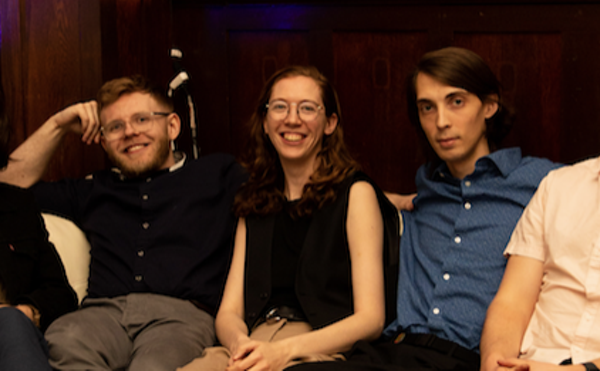"Inside of my home, when I was a child, I had a very safe, warm environment, with a warm family," Badu recalls. "But walking outside was a whole different story." Her younger sister, Koryan, remembers being able to tell who was who from the sound of the gunshots. She also likes to say that she and Erykah were in the neighborhood, but not of the neighborhood. They would say to themselves, even as young women, This is where we are, but this is not what we have to be. Just where Badu lives now will not be revealed for obvious reasons, but it takes her only a few minutes to go from home to 'hood, which is good, since she's there almost all the time -- still in it, always in it.
Badu prefers that little mention be made of her home. It's her private sanctuary, with descriptions of what's inside or out preferably kept secret. Suffice it to say, it does resemble a temple, a boho's paradise full of handmade cabinets and quirky thrift-store furniture and other found treasures, where open windows allow in fresh air and let out the sound of her latest album, which she listens to even when no one else is around. "I love it," she says, when told most musicians wouldn't even admit to listening to their own records, much less spinning them when journalists come knocking at the front door. "Why wouldn't I want to play it? I made it so I could listen to it."
A good part of this interview is conducted in Badu's cozy kitchen, where she prepares a vegan lunch -- a little spinach, some veggie-made meat -- for her son Seven, who recently turned six. Seven's the son of OutKast's Andre Benjamin, whom she mentions often but with whom she's no longer involved. (She's been known to collaborate, in the studio and out, with rapper Common.)
On a kitchen countertop sits Badu's 2003 Soul Train Lady of Soul Entertainer of the Year Award, with its golden sculpted bust of Aretha Franklin, for whom the accolade is named. Its current perch is a promotion from its former resting place as a doorstop. "It's gotta pay its dues before it can go in the case," Badu says, referring to the glass case in which rest her three Grammys and numerous other statues and plaques and keys to the city. "If my mother knew it was sitting here in the kitchen, she'd call Don Cornelius," referring to the Soul Train engineer with the locomotive-engine's voice.
In this setting, she doesn't come off as a woman who would be accosted during her visits to radio stations or the nearby Target. It happens all the time -- jocks and program directors hit her up for on-air plugs, fans want her signature on a piece of paper -- but in her white, long-sleeved pullover and shiny black pants, she comes off as just another single working mother without enough time in the day to do her daily chores, which then spill over into the next morning. Only when she goes upstairs to put on a green dress and makeup for a photo shoot does she look like Erykah Badu, a Famous Person you might have seen on television or a magazine cover. Even then, hers is a tempered fame, a low-key brand of celebrity found among those who cash in on their talent, yet refuse to take the money and run.
Erykah Badu's latest album, Worldwide Underground, the fourth of her career, is further proof of her individualist nature. Though it debuted at No. 3 on the Billboard album charts last September, it moved only 143,500 copies -- "the smallest first-week take of her four sets," noted the music trade publication. On October 5, on the front of the Sunday Arts & Leisure section, New York Times pop-music writer Kelefa Sanneh noted that Worldwide Underground sneaked into music stores September 16 with little push from Motown Records. Sanneh pointed out that the album, a hypnotic blend of danceable soul and avant-garde noise, has not been terribly well received by the music press. "It seems likely that some of Ms. Badu's fans aren't even aware that she has a new album in stores," he wrote, adding that Badu "seems less like a star than ever."
Yet Badu isn't adamant about working Worldwide Underground. Make no mistake, she loves it the way a parent loves a newborn. It was a struggle from first track to last, recorded on the tour bus whenever inspiration struck, with Lenny Kravitz, Angie Stone, and Queen Latifah pitching in. It's an amazing record, a heartbeat groove sustained over some 50 minutes and 10 songs, some fragments and others prolonged waves of funky, dance-floor ambiance. Motown Records calls it an EP, but don't be fooled. They only say that so they can sell the record for cheap and pay the artist even less than labels already do, which ain't much.
The New York Times is right about the record: Badu has never seemed less a star. Perhaps that is because, with each album she makes, Badu turns more of her attention toward her activism and further challenges her audience to keep pace with both the music and the message. She's weeding out those who only want catchy, feel-good hit singles. Her debut, 1997's breakout Baduizm, was a good-time groove laid over uplift-the-race lyrics and spiritual aphorisms. It was full of that old-time religion proselytized by Marvin Gaye, Stevie Wonder, Nina Simone, Billie Holiday, and Clarence Jowers Smith, founder of the Five Percenters, whose Nation of Islam-inspired gospel of a God within rather than above was something Badu picked up as a young woman. She assumed the role of Nubian goddess and neo-soul princess, adorned in colorful head wrappings and Afrofabulous jewelry -- the ankhs around her neck, the gold around her wrists. Those looking for a soul savior found a willing candidate; though she didn't invent or even like the term "neo-soul," created by music-bizzers to sell R&B artists to hip-hop audiences, it stuck to her like glitter to sweat.
Then came Mama's Gun in 2000, which was angry, restless. She was a star, but sounded like someone just trying to get heard; even her voice, famously fragile, roared just a little bit. The princess had become a warrior. And now comes Worldwide Underground, the result of a tour upon which Badu embarked when she smashed into the brick wall of writer's block. And though she'll be the first to admit that it isn't the easiest thing in the world to listen to -- one track, "I Want You," clocks in at almost 11 minutes, appears to skip in places, speeds up and slows down in others, and is drenched in avant-guitar feedback toward its end -- she doesn't want people to think she's trying to challenge the listener. "It doesn't go through my mind," she insists. "If I feel it, if it sounds good to me, that's what I wanna put out, because I have to go by my own opinion. I can't really go by what's popular or what I think they expect me to do. I would be putting myself in a prison. I'm gonna do what I feel, and I think the audience likes my truth. When you're different or doing something different from what's going on, there's always a big risk involved. But behind someone who makes that kind of music is an energy that is unstoppable. I'm gonna do this music whether I have a record deal or not."
She mentions the album's cover, which says "Neo-soul is dead."
"I didn't invent 'neo-soul'; neither do I know what it is," she says. "I don't know what that is. I saw that in an article one time, that I was the queen of neo-soul. Now, it's good to be the queen, but I at least wanna know what it is."
Erykah Badu always wanted to be famous. Maybe not as a singer. Maybe as an actress. Or as a dancer; she studied dance at Grambling University. But fame is as good a dream as any, when you grow up in the inner city and your father's in and out of prison and your mom's working all the time to make ends meet and your grandmother's keeping you in the house to protect you and your little sister and brother.
She was raised to be a performer, schooled in dance and drama when she was a little girl. "The arts," says her 29-year-old sister Koryan, "were our outlets." Koryan, known as Koko, fronts her own hard-rock band called Nayrok. Eevin, their 20-year-old brother, is an aspiring rapper.
"Everyone thinks my mom did something wrong at both of our births," Koryan says, laughing. She's sitting on the front porch of her grandmother's home, which still serves as the family's gathering place. "We've always been eccentric, out there. It's from letting go of that artistry we held in for so long, whether it was through our dress or choice of friends or music or poetry. We had to release it. It wasn't acceptable to do that in our home, so we had to go out and tear up our clothes and all of that to express who we were."
For awhile, when she appeared from nowhere wearing colorful head wraps, Badu wanted people to think of her as out there -- unlike anyone they'd ever seen, met, or heard. She rehearsed her lines for interviews, chose carefully her wardrobe for performances, sculpted public perception like a work of art. She knew the power of the African head wrapping and the ankhs. Newspapers and magazines in the United States and England wrote fashion stories and style pieces about Badu's clothing -- "black chic," The Washington Post called it during "a season of positive change."
In March 1997, when she made her first trip to the U.K., she told a British reporter, "I'm seeing balloons and flowers and birds. I've been dressing you up while you been sitting there. I've dressed you up as a clown, I dressed you up as a stripper." The writer concluded she was an amalgam of "relics and myth." In another era, she would have been thought of as merely eccentric and charmingly so -- hippie dippy, earth mother, soul sister. There would have been no judgment passed, no eyes rolled; no one would have turned up a nose at the smell of incense, which she burns onstage by holding the stick between her teeth like a grenade's pin.
The headdress is long gone -- moved to the inside, Badu likes to say, no longer required for respect. It has been replaced by the nuclear 'fro she sports, a mushroom cloud of a wig she wears even when at home alone awaiting a journalist's knock. (Beneath it is a starter kit, where not so long ago was a clean-shaven pate.) It makes her look just like Angela Davis, a clenched fist held high in the air. The look has changed, she will say, but the message has not.
"I'm still black, and my hair is natural, and I'm African and Afro-centric. It's the same thing to me," she says. "It's a political statement. Your hair is a political statement. The way you dress is a political statement. The kind of jewelry you choose or don't choose is our politics. These are all part of my politics. It's part of my personal rebellion, part of my personal nonconformity. Being able to say what I wanna say is a very dangerous thing. Using my platform to uplift my community is a very dangerous thing. All of it's pretty dangerous, once you start challenging people. You're up to face criticism."
She knows what they said, what they still say: She's a little off, a lot of jive. "Flighty," she offers as she nibbles on a peach. "They probably think I'm in the clouds, into astrology, a space cadet." She grins. "I am that, but I am a Pisces, so there are two fish. Pisces -- we're the envy of the women, and we rule the men. They think a certain thing about me, but there are two parts to me. I am a searcher, a nonconformist." She laughs. "But I'm also a grounded individual who wants to have peace in her life and in everyone else's life. I've always been called that, in high school and elementary school and in college -- the Weird Girl. What I am is a free person. There's a freedom not to be afraid to do anything. I think that's what it is. It doesn't matter what they think. It doesn't matter. But I do understand and know the 'She's on Neptune and not into reality' thing."
She grins and tosses aside the peach pit.
When Badu was first signed, those who knew her back in the day expected her to carry them to stardom, or at least New York or Los Angeles, on her narrow shoulders. Some went along for the ride, among them Chonita Gilbert, an old friend and extraordinary backup singer now recording as N'Dambi. Some didn't make it to the final destination and became unhappy. Ty Macklin, mastermind of hip-hop band Shabazz 3, even took Badu to court in New York City in 1997 over a song on Baduizm. They agreed in early '98 to dissolve the lawsuit, but it left a wound.
So there is a price to be paid for trying to help; there can often be the bitter residue of failure, which happens whenever people feel something's been promised and yanked away from them.
Badu recalls her earliest days as a recording artist, when she was between signing and stardom. After each show, she and N'Dambi would stay and sign autographs, even while the cleanup crew was stacking chairs. It was an honor, she says, a humbling experience she didn't want to take for granted. Now, she says she will do anything but sign a piece of paper for someone. Do not ask. Please, she begs. Anything but that.
"I'm scared to say it, because what you say goes out into the universe, but I don't want to," she says. "I will sign them, and I appreciate people for pushing my energy along, because that's exactly what they're doing, but I lost the desire for certain things in this business."
She's asked if that is because she would rather leave them with something more permanent than a signature. She nods.
"Yeah, but I also have to understand that's important to them." She grins. "Everybody doesn't think like the Weird Girl."

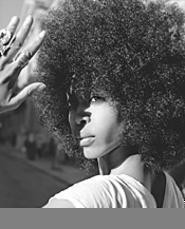


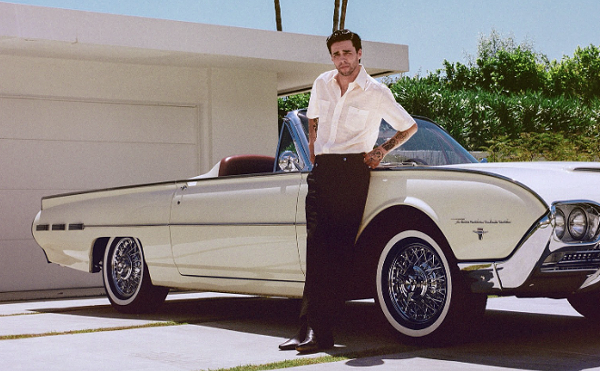
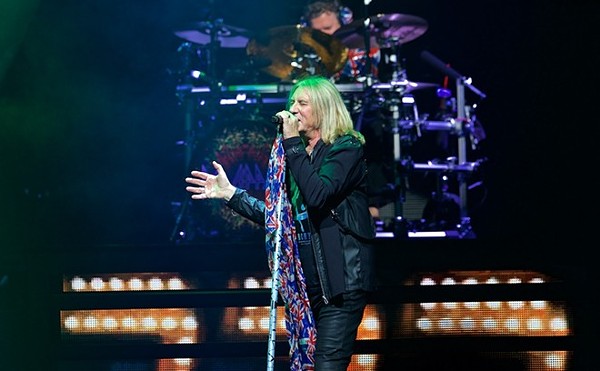
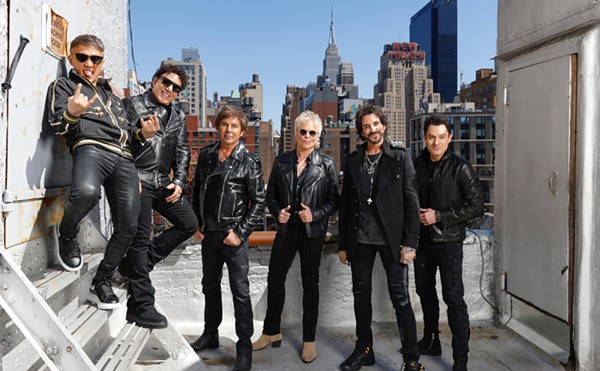
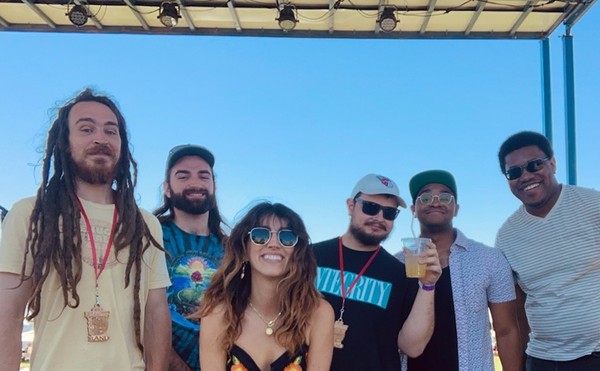
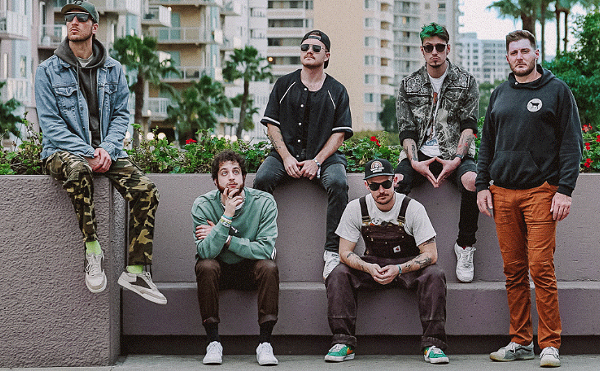
![Mourning [A] BLKstar.](https://media1.clevescene.com/clevescene/imager/clevelands-mourning-a-blkstar-returns-with-sophisticated-suite-of-new-songs/u/golden-s/44709952/screen_shot_2024-07-12_at_10.18.29_am.png?cb=1720806957)
